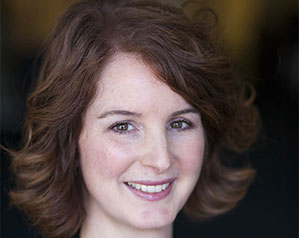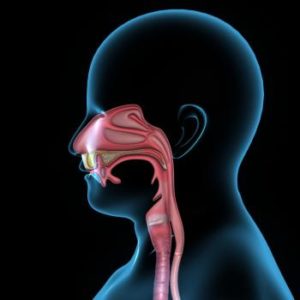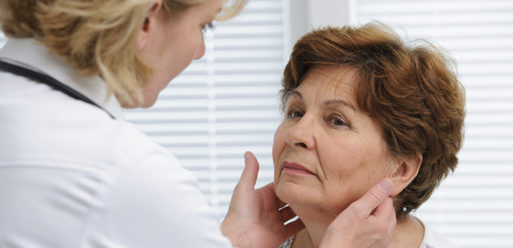
Credit: speech.steinhardt.nyu.edu
Today, SevenPonds speaks with speech-language pathologist Erin Embry. Erin holds a dual degree in both Communication Sciences and Disorders and Health Policy and Management. She is also Director of the Speech@NYU online MS program in Communicative Sciences and Disorders and the graduate student academic advisor. In her clinical work, Erin has focused on treating swallowing disorders. She recently contributed to a cookbook featuring recipes tailored to meet the needs of those who suffer from dysphagia.
Ellary: Hi Erin! Thank you so much for taking the time to speak with SevenPonds. Your work sounds very exciting! Can you start by giving me a brief rundown of what you do in your role as Director of the Speech@NYU online MS program in Communicative Sciences and Disorders?
Erin Embry: In my role as Director of the Speech@NYU — NYU Steinhardt’s online masters in speech and language pathology – an online MS program in Communicative Science and Disorders, I develop and teach courses related to the clinical process, swallowing disorders, and professional issues. I also am involved in department and school-wide curriculum development with a focus on cultivating collaborative efforts of various disciplines in the educational and healthcare settings. My approach to teaching and leadership is to promote interdisciplinary collaboration at all levels of academic, clinical and professional training.
Ellary: You have over 15 years of experience as a licensed and certified speech-language pathologist. When did you become interested in speech disorders and how did you decide to make the treatment and studying of speech pathologies your life’s work?

Credit: medicalnewstoday.com
Erin: A career in the medical field always interested me. I also had an equal interest in working with individuals across the lifespan with disabilities. The profession of speech-language pathology was the perfect intersection between the two.
Ellary: During your academic career you’ve focused on helping adults with acquired brain injuries and progressive neurological diseases with a primary focus on dysphagia. What led you to this specialty?
Erin: Early in my academic and clinical training, I was drawn to the health care setting and excited by the opportunity to work collaboratively with a variety of different health professionals to meet the needs of patients with a multitude of medical diagnoses and issues. A rehabilitation team organically thinks in terms of quality of life issues, and eating and socializing is typically at the center of those. Understanding that, the area of dysphagia was a natural fit for me. It allowed me to play a key role in helping my patients safely return to these essential activities of life. In addition, I also enjoyed the clinical process of identifying and treating the underlying causes of chewing and/or swallowing difficulties, while appreciating the unique cultural, physiological and interpersonal differences of each patient.
Ellary: Will you explain what dysphagia is?
Erin: Dysphagia is the medical term for difficulties swallowing and eating. Needless to say, the simple act of eating is anything but for those who suffer from dysphagia.

A speech-language pathologist evaluates a patient for dysphagia
Credit: speech.steinhardt.nyu.edu
Ellary: Who suffers from dysphagia? Why do older adults tend to suffer disproportionally from dysphagia?
Erin: Anyone can experience dysphagia, but the condition is more frequent in older adults. The U.S. Department of Health suggests that about 15 percent of the elderly population experiences some form of dysphagia. There are a wide variety of symptoms, such as the inability to safely chew and swallow normal food or refusing textured food or liquid. As a result of dysphagia, people are at risk for dehydration, poor nutrition and social isolation during eating situations.
Join us next week for Part Two of SevenPonds’ interview with Erin Embry, where she discusses the cookbook for dysphagia sufferers that she contributed to.

 What is Dysphagia and How Can The Eating Experience Be Enhanced For Those Who Suffer?
What is Dysphagia and How Can The Eating Experience Be Enhanced For Those Who Suffer?


 Our Monthly Tip: Make an “In Case of Death” File to Ease Loved One’s Grief
Our Monthly Tip: Make an “In Case of Death” File to Ease Loved One’s Grief
 Passing of Beloved Comedian Births a New Comedy Festival
Passing of Beloved Comedian Births a New Comedy Festival
















Here I am reading this post and I had never heard of this condition. Yet, it just so happens, that earlier today my mother was explaining she just found out dysphagia is a hereditary condition in my Swiss grandmother’s family. It is passed through females to the males. It just so happens that with all the women on that side of the family, only two boys were born. One of the boys is now in his 60’s has to be fed through tubes to his stomach. How tragically unfortunate that such a condition exists.
I am interested to read part 2 to learn more.
Report this comment
Hi Suzette,
I just read your post and am fascinated by this…dysphagia is not typically known as a hereditary condition, but typically a co-occuring symptom of a variety of other medical conditions. Was there another medical diagnosis common in your family members?
Report this comment